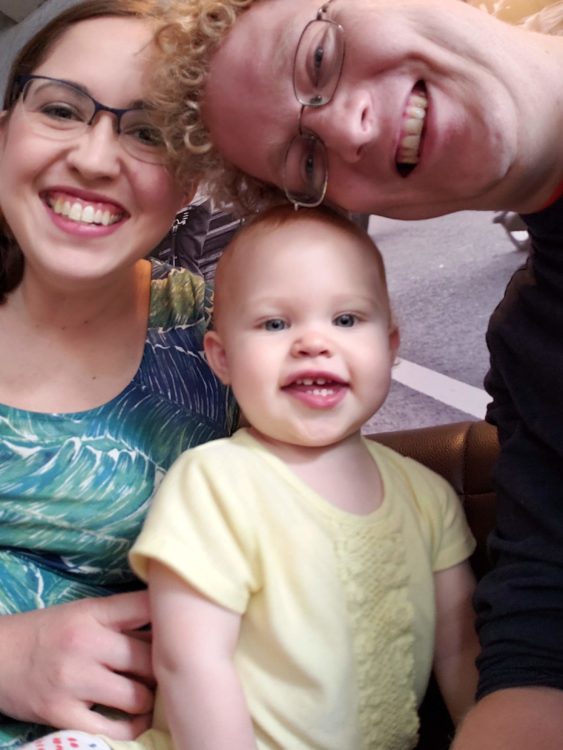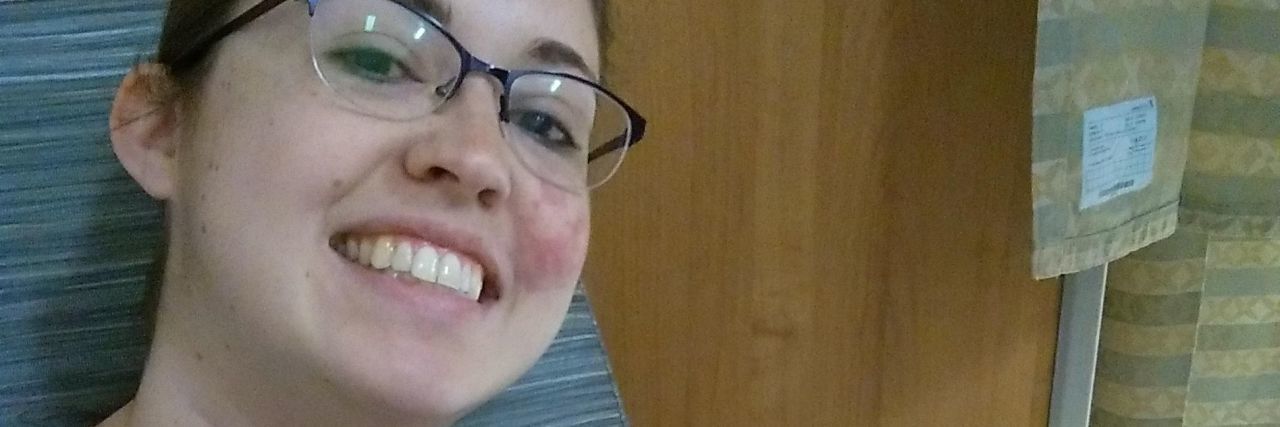9 Things You Should Know About Crohn's Disease for IBD Awareness Week
For IBD Awareness Week, there are some things I’d like to share about living with Crohn’s disease. This is #MyIBD.
1. My illness does not define me, but it is very much a part of who I am. I am a mother, a musician, and a teacher. I am not Crohn’s disease. However, sometimes it informs my decisions about what I do. I have become very aware of what my body needs and I’ve (mostly) learned to say no when I need to.
2. My tired is different than your tired. Have you ever had the flu? A stomach bug? A really bad cold? Do you remember how exhausted you were? Your body felt drained and heavy. You couldn’t possibly imagine getting out of bed. Luckily, you probably got over whatever bug was making you feel that way. I didn’t. So when I say I’m tired, that’s the feeling I’m describing. It might come out as “I’m tired.” But what I really mean is “I am pushing my body to the absolute limit just by getting out of bed today and the fact that I’m standing in front of you right now is basically a miracle.”
3. IBD and IBS are not the same thing. IBD stands for “inflammatory bowel disease.” Crohn’s disease and ulcerative colitis fall under this umbrella. Both are autoimmune diseases that primarily affect the digestive system, but can also have complications in other parts of the body. IBS stands for “irritable bowel syndrome.” Yes, both are (quite literally) crappy things to deal with, but they are not the same. I have an autoimmune disease that causes damage to my digestive system. When I have a flare-up, I experience severe abdominal pain, arthritis symptoms, extreme fatigue, weight loss, dehydration, and all those other yucky things that make IBS and IBD similar. I have been hospitalized several times for Crohn’s disease or Crohn’s related problems. So, yes. People with IBD and IBS can experience similar symptoms, but no they are not the same!
4. I often gain weight during a flare. I know this sounds contradictory to the symptoms that occur during a Crohn’s flare-up, but it’s true! I (and many others with varying autoimmune diseases) get put on a corticosteroid called prednisone when I have a flare-up to help stop inflammation. Unfortunately, one of the many side effects of this medication is weight gain. The struggle with moon face is real.
5. Biologics have given me my life back. I’m sorry, but I don’t care that your mother’s sister’s cousin’s friend cured their mystery illness simply with diet and exercise. I have been lucky enough to not have had surgery yet, but I have been hospitalized many times for Crohn’s related problems. I started biologics in 2012 and it changed my life. I think I had forgotten what it was like to feel relatively normal. Suddenly, I didn’t have constant pain in my abdomen, I wasn’t losing weight and needing to be on and off steroids, my joints didn’t hurt, I could function! Unfortunately, I am currently on my fourth biologic since 2012, but I am hopeful. Most recently, I was on a drug that worked for three years. That may not seem like a long time, but three years of relatively good health is a blessing when you’ve seen the other side of it. I’ll take what I can get and I’m hopeful my new medication will work.
6. “How are you feeling?” can be a loaded question. So please use it wisely. Crohn’s disease is an autoimmune disease the currently has no cure. Even when I’m “in remission” I can feel its effects. Biologics have quelled my Crohn’s flares, but it also makes me much more susceptible to contagions. What you may consider “just a cold” can easily turn into something much worse for me very quickly. And even though you may see me doing a lot, I still tire more easily than most. It’s hard to grasp the idea of an illness that never goes away when you don’t live with it. Often, when someone asks me how I’m feeling, I panic. Whether they realize it or not, most people expect you to say “much better!” That’s not always true with a chronic illness, so I often feel compelled to say “Great!” Or “I’m doing well” even if it’s not true. If you ask that question, please make sure you are prepared for the actual answer. Sometimes I might say “I’m great!” But sometimes the answer might be “I feel awful.”

7. I’m careful about my diet, but I’m not sick because of something I ate. I have triggers. I follow a pretty strict diet. There are foods I know will make things worse if I’m going through a flare-up. However, eating something on my trigger list is not the cause of my disease. It is an autoimmune disease. My body is attacking itself. There are times when I eat things on my “safe” list that still make me sick!
8. I am extremely good at hiding my pain. This is a common theme in the invisible illness community. We often get told “but you look great!” Or “you don’t look sick!” I’m aware. I work very hard to have some sense of normalcy especially when I’m not feeling well. I put on my makeup, I dress well, I go to work and do my job. I need to live my life. But if I open up to you and say “I feel awful today,” please really think before you speak. Usually I don’t need to hear you say anything. If you do want say something “that sucks” or something along those lines works. I’m not looking for a solution because, usually, there isn’t one!
9. I’m not that different from you. I think this one is pretty self-explanatory. I have seen the inside of more hospitals and doctor’s offices than most people, but at the end of the day I’m making my way just like everyone else. I don’t write about my disease so I can get pity. I write so I can share and educate others about the struggles and triumphs of living with a disability.

